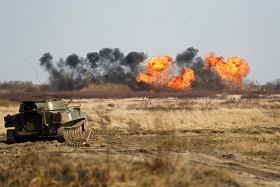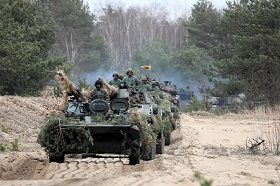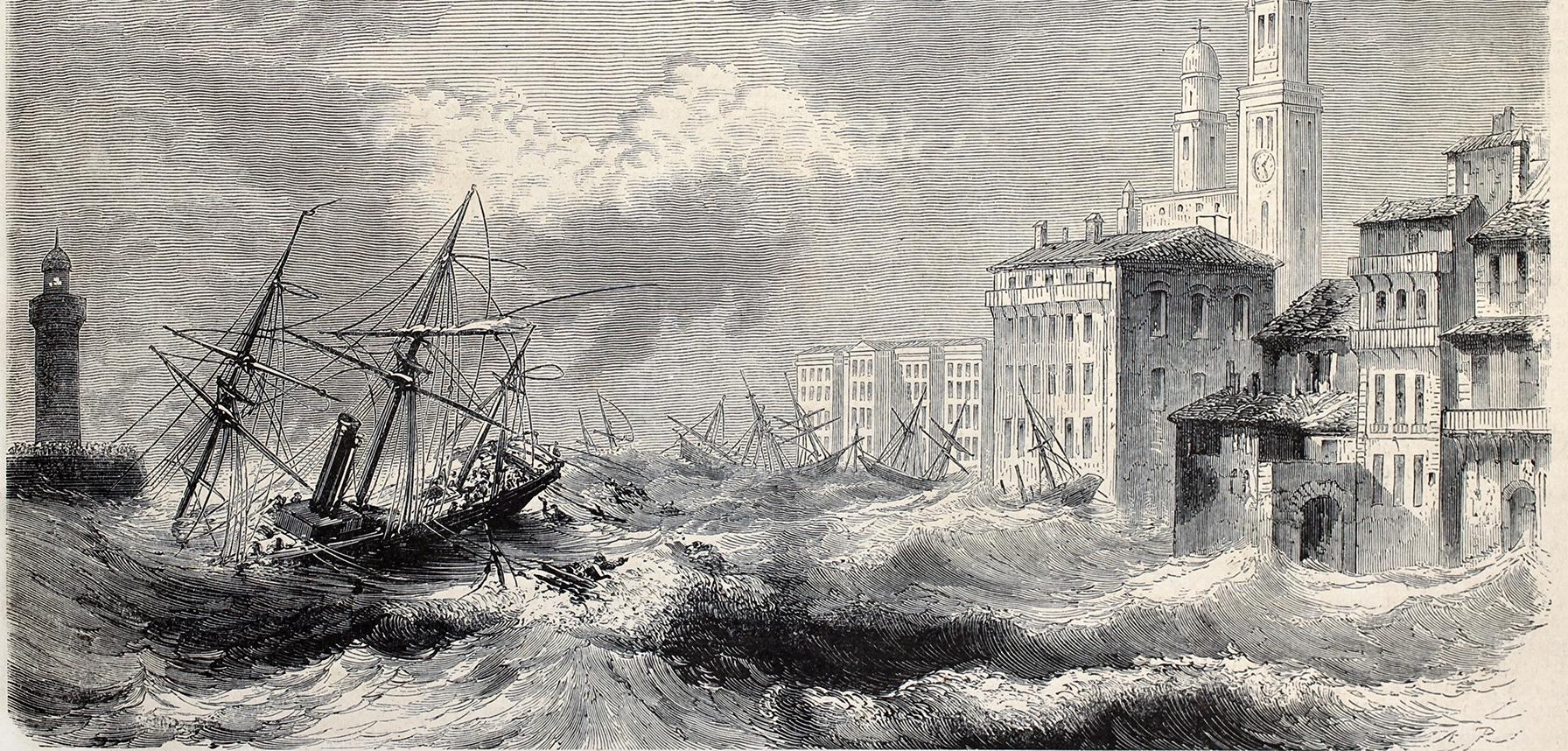An exclusive interview with OSCE Secretary General Thomas Greminger for the Russian International Affairs Council on the sidelines of the 2019 Paris Peace Forum.
Interviewed by Nikita Lipunov, RIAC Expert.
Mr. Greminger, could you please say a couple of words about the OSCE’s priorities today?
We are probably the only remaining platform for inclusive dialogue between the East and the West, so we want to promote it to contribute to overcoming those divisions that have opened up over recent years between the East and the West. I think it is very challenging, but nonetheless, it remains our strategic objective.
Then, clearly, we contribute to preventing, managing and resolving conflicts. On the one hand, structured prevention, by facilitating, for instance, dialogue in the Contact Group in Minsk and by promoting the implementation of the Minsk agreements. Or, for example, by ensuring that ceasefire violations in the Nagorno-Karabakh conflict don’t spin out of control by having a personal representative of the Secretary-General Office who is in close contact with stakeholders on both sides and can intervene if there is a risk of ceasefire violations. On the other hand, it is also structural prevention of conflicts in the sense that we contribute to support states in establishing resilient, democratic institutions that guarantee that human rights are respected and that the rule of law is strengthened. For this, we have three institutions: The Office for Democratic Institutions and Human Rights in Warsaw, The Representative on Freedom of the Media in Vienna and The High Commissioner on National Minorities in The Hague. All in all that is what I would call preventing, managing and resolving conflicts.
Then, let me also refer to combating transnational threats, which is another big priority for our Organization. Transnational threats are those that can’t be stopped by borders. First of all, it is trafficking of all sorts: of human beings, drugs, arms. Secondly, it is terrorism, violent extremism. Thirdly, there are cybersecurity-related threats. But it is also the nexus between climate change and security-related repercussions of climate change.
Moreover, we can mention the security-related repercussions of migration. I think all of the abovementioned categories would fall under the heading of transnational threats. And here, I think, the OSCE does two things: we, again, provide a platform for exchanging best practices and, at the same time, offer expertise and do institutional capacity- and institution-building through our field missions, through the expertise that, for instance, our Transnational Threats Department in the Secretariat can offer. I’ll stop here. These are the main priorities of the Organization.
It is already 2019, and almost ten years have passed since the Astana Declaration was signed. In your opinion, have all the Astana Declaration’s objectives been achieved?
Of course, not. I would clearly make the point that the vision of a common Euro-Atlantic and Eurasian security community remains quite valid. I don’t see a better vision anywhere. However, in reality, we couldn’t be farther away from realizing this vision as there is huge distrust between the major security stakeholders in the OSCE area. There is a lack of dialogue, there is the unravelling of the arms control architecture that we have built during the past 2-3 decades. There is, again, an armed conflict in Europe — the crisis in and around Ukraine. Thus, I believe, as long as the Astana Declaration and its vision remain valid, we couldn't be farther away from its full implementation.
In this regard, do you think that the Organization needs an institutional reform?
I am trying to reform the way the Secretariat works. I have launched a process that is entitled ‘Fit for Purpose’ where we work on, for instance, management processes that have organically grown over the last two decades and we try to streamline, to improve them. We work on ICT-related issues with the view of better usage of the ICT technologies to achieve our goals. We work on human resources related challenges, on the secondment and contract policy reform. We promote gender and youth mainstreaming — in other words, we work on a number of very relevant issues that would ensure that the Organization remains responsive. I suppose, these are all steps that can be undertaken by the Secretariat, at least partly, without the formal blessing of the participating States and I can say that these reforms are well underway.
There are also issues where we need the consent of the participating States, and here it becomes more challenging. I would, for instance, cite the example of the budget reform. We have a really cumbersome budget process and would like to reform it and to introduce a biannual budget, with longer planning horizons. In this area, we are still trying to convince the participating States that this is a good way forward.
As for institutional reforms in the broader sense, it is a well-known fact that our Organization still has no constituent documents and no ascertained legal personality. These issues are linked with each other by geopolitics, if I may say so. There is conditionality by participating States in linking the two. Of course, I wish these challenges, these issues could be easily resolved but, to be frank, in the current climate of distrust among the key stakeholders in the OSCE, I don’t believe that it is a realistic perspective — neither for today nor for tomorrow. Maybe for after tomorrow and therefore we should keep aiming at improving the system.
It is a really challenging task, of course. From your point of view, how likely is a new OSCE leaders’ summit in the near future?
I think there needs to be a common sense among the participating States of what such a summit should produce, what the tangible outcome of it would be. And once there is a growing common understanding, I believe we can start working towards such a summit. I would say that this depends, at least partly, on the progress achieved in resolving the crisis in and around Ukraine, that would allow rebuilding some of the trust that has been lost among the key stakeholders in Europe and this would then allow, again, to tackle more fundamental issues of European security and that bring about a new gathering of OSCE’s heads of state and government.
What are your expectations from the upcoming Ministerial Council meeting in December?
I hope that we will, in the first place, get a number of meaningful decisions in crucial areas of OSCE's work across all three dimensions. I also hope that we can repeat last year’s success in achieving consensus decisions and declarations concerning all three dimensions and some forward-looking issues and challenges. This is paramount because it gives our work a direction, also in terms of allocating our resources. At the same time, I am confident that the Bratislava Ministerial Council will offer space for meaningful political dialogue.
Then, I hope that we will get a clear signal out of Bratislava for our work in managing and resolving conflicts and regarding the support of the Minsk agreements implementation. I think we have the key conflict-management tool engaged there — the Special Monitoring Mission — and I would certainly expect the ministers to give a clear signal in support of this Mission again. And this, of course, also implies supporting the respect of monitors and the SMM’s assets by the sides. This is very important — clear support for our facilitation role in the Contact Group — but, perhaps, there is also more medium- to long-term ideas that could be an outcome of our Ministerial Council. Miroslav Lajčák conducted a very successful informal Ministerial Council meeting in the High Tatras in July, and I think many good ideas were brought up. And if they were to be consolidated by our Ministerial Council, it could also give some direction for the OSCE’s work for the next few years.
And we have come to the final question: what is your message to the world leaders at the Peace Forum?
Invest in cooperative approaches to solving security problems!
Paris
November 13, 2019







